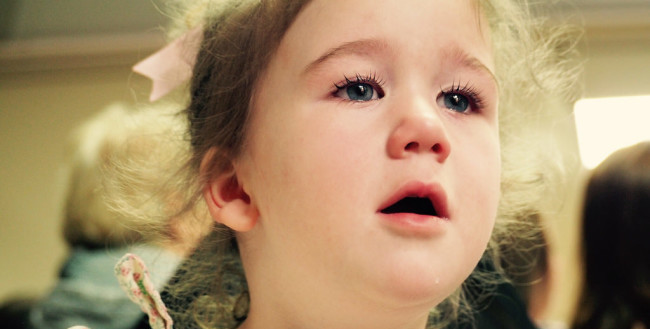 No matter how diligently you try to protect your anxious children from hearing about terrifying events going on around the world, sooner or later they’re bound to learn about some of them. They may inadvertently catch a glimpse of the horrific happening on a TV screen, or hear about the news through their friends or other adults.
No matter how diligently you try to protect your anxious children from hearing about terrifying events going on around the world, sooner or later they’re bound to learn about some of them. They may inadvertently catch a glimpse of the horrific happening on a TV screen, or hear about the news through their friends or other adults.
And as scary as these events may be, they can become even more frightening in your anxious child’s mind. Confusion, misinterpretation and extremely vivid imaginations often make sure of that.
How Children Perceive Danger
How children process danger depends on their age and their level of development. Your aim as a parent of an anxious child is to help your child feel as safe and protected as possible. This goal can be helped by looking at events at your child’s level of understanding.
Young children: The youngest children typically react to a situation the same their parents do. If your young child falls and skins a knee and you scream in terror, for instance, your child is likely to do the same. If you instead remain calm and comfort your child as you tend to the scrape, your child is also apt to remain calm.
School-age children: Children of this age tend to focus more on what’s in front of them instead of the big world around them. They may be more apt to engage in normal activities with their friends than talking about the horror on the news. Retaining their daily activities, routines and structure is essential during times of extreme stress.
Adolescents: Learning about horrific events can prompt adolescents to react in one of two ways. They may become too reckless or too dependent. Keep an eye out for risky behaviors, such as drinking or using drugs.
How Parents Can Help Anxious Children Cope
Before you can even begin to help your anxious child cope with a horrific event, it’s crucial to first deal with your own emotions surrounding it. Acknowledging your own anxiety, fear, anger, stress or other feelings that erupt is your first step toward processing them.
Parents who can move through their own emotions are much better able to help their children do the same. They also end up serving as positive role models, showing their children that it’s OK to:
- Have any number of different emotions from any given event
- Experience those emotions instead of trying to stuff them down or pretend they don’t exist
- Talk about those emotions in order to get through them
Parents can also learn to stop, look and listen to help their anxious children even further.
- Stop anything that’s going on when you notice your anxious child is acting in a way that’s unusual or may indicate something deeper is going on
- Look for clues in the situation or environment as to what may be causing the emotions
- Listen to your child’s words to help determine what those deeper emotions may be
Regardless of when or where scary events may be taking place, children are likely to be most concerned about the safety and comfort of their family, friends and others they know. As psychiatrist Dr. Leon Hoffman points out, the most important thing a parent can do for their children is to reinforce they are indeed safe and you’ll do everything you can to ensure they remain that way.
SOURCE:
Photo Credit: darrylwood Flickr via Compfight cc





